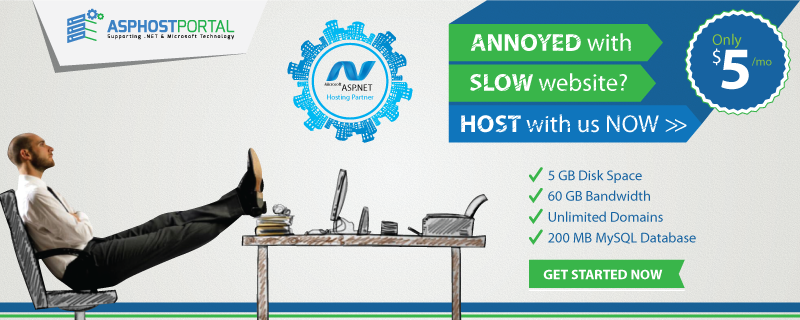There may be times as a small business owner when you feel the need to seek assistance. Maybe you’re having trouble keeping up with your obligations, or you’ve come to the realization that you don’t have the necessary skills to complete some tasks.
You may find that outsourcing is the best course of action in these circumstances. It entails contracting with a third party to carry out necessary tasks, like managing the website and social media accounts for your business. Prior to enlisting outside assistance, it’s crucial to pinpoint the business areas that stand to gain the most from this tactic.
We’ll examine the key benefits of outsourcing jobs for your small business in this article. We’ll also highlight the six tasks you can definitely delegate to someone else, as well as the three things your small business should never outsource. Let’s get going!
The Benefits of Contracting Out for Small Businesses
Small business owners can benefit greatly from outsourcing. First of all, hiring third parties is frequently less expensive than hiring new employees because you won’t need to pay for office space rentals or location expansion.
Additionally, you won’t have to pay other expenses associated with hiring staff, like software licensing. When you outsource, you only pay for the services that the outside party provides.

As a small business owner, outsourcing can also help you manage your stress and better prioritize your tasks. You might discover that your workload becomes unmanageable as your business expands. You can avoid those pointless burdens by delegating some tasks to others, freeing up your time and attention for the development of your goods and services.
Finally, outsourcing can make it easier for you to accomplish your business objectives. For instance, hiring a social media specialist (rather than doing it yourself or teaching an existing employee) will help you grow your Instagram audience and increase sales more quickly.
Similar to that, if you hire a pro, you can have a new website up and running in a matter of days. In the end, outsourcing can be used to fill workforce gaps and have professionals manage your organization’s weaker departments.
How to Choose the Type of Assistance You Need
You may have decided that outsourcing is the best choice for your small business and are unsure of the kind of assistance you need. Let’s examine a few things to think about.
The best place to start is by figuring out which tasks are challenging for you and your team. These usually fall under a separate category from primary responsibilities or are added on top of them.
For instance, even if social media marketing is not their area of expertise, your customer service assistant might dabble in it from time to time. It makes sense to outsource your social media marketing in this situation so you can have someone who can spend more time on it and produce better results.
When working on particular tasks or projects, you may also want to keep track of your time. Even if you and your team are capable of handling every aspect of your business, some tasks may require more time than others and thus call for outsourcing.
For instance, managing your website may take up a significant portion of your working day even though you possess the technical know-how to do so. So, it might be a good idea to delegate the upkeep of your company website to a professional.
3 Things Your Small Business Must Never Outsource
You and your team may find outsourcing to be more convenient. However, we think there are three aspects of your business that you should keep out of the hands of outsiders. Let’s look at them now.
1. Core Competencies
The skills or qualities that set your business apart from the competition are known as your core competencies. For instance, your innovative marketing approach or the excellence and dependability of your products may be your key competencies. In other words, it’s what distinguishes your company from others.
You might want to refrain from delegating this core competency to outside parties since it gives you a competitive advantage. Consider it your “secret recipe” that you want to keep safe and keep getting better.

2. Customer Service
Customer service is another area of your business that you should avoid outsourcing. You can make sure that your customers’ problems and requests are resolved quickly and effectively by interacting with them directly. You will gain a reputation for genuinely caring about your user base if you do this.

It can be challenging to verify whether a third party handling your customer support operations is treating your customers with professionalism. Your brand’s reputation may be permanently harmed by poor service. Additionally, you risk omitting crucial details about your weaknesses that could help you strengthen your services.
3. Human Resources
Managing your own human resources in a small team might be more economical than outsourcing it. One employee may be in charge of processing payroll, approving or rejecting requests for vacation time, and dealing with other matters involving employees.
Any issues or conflicts within your small team can be addressed and resolved right away if you have an in-house human resource manager. Your employees will have a secure and encouraging work environment as a result, which may increase their productivity.
6 Reasons Your Small Business Should Consider Outsourcing
You might feel the need to hire more freelancers or businesses to handle a particular task or business function for you as your workload starts to increase. The following six services are the main ones you should think about outsourcing if you want to save money on hiring and training staff.
1. Content Marketing
Publishing content with the intention of attracting attention to your brand and products is known as content marketing. Typically, this includes posts on social media, videos, and articles.

For your audience, you need to take the time and be creative when creating content. You can hire qualified writers to regularly produce high-quality posts for your business website or social media channels when you outsource your content marketing to a freelancer (also known as an independent contractor) or content agency.
By outsourcing, you can make sure that your content is consistently engaging and new. This can help you improve your rankings in search engines in addition to consistently giving your customers value.
2. Search Engine Optimization (SEO) Marketing
SEO is a marketing tactic that enables users looking for products in your niche to find your website. You could increase sales by increasing website traffic with its assistance.
But SEO can be difficult to master. The technical work is extensive, and there are many different areas to cover, from keyword research to metadata optimization. To help your website rank higher on search engines, you might want to think about hiring SEO strategists.
3. Social Media Marketing
It can be difficult to manage numerous social media accounts. Publishing original posts every day is the fastest way to increase your audience and engagement, but you and your team might not have the time to do this.

You won’t have to spend hours creating engaging Facebook page posts or taking stunning photos for your Instagram account if you outsource your social media marketing. Social media pros can handle all the posting while assisting you in expanding your audience.
4. Website Design
Nowadays, virtually anyone can build a website. The availability of numerous drag-and-drop website builders has made creating your own website simpler than ever. However, not everyone has good design taste, and a shoddy website can turn visitors off.
Your business should have a professional website if you want people to respect your authority or purchase your online products. We advise hiring web design professionals who can produce a stunning WordPress website that accurately represents your company’s image and core principles and provides a positive user experience (UX).
5. Website Management
Building a well-designed and useful website is just the first step for a business owner. It’s crucial to make sure that your site is actively managed and maintained once it has been set up.
We advise finding someone who can handle the technical work because it is a time-consuming and occasionally tedious task.
Your website will occasionally need some updates or backups. Additionally, your site might stop responding or some of its features might stop working.
If you outsource the management of your website, you won’t have to worry about resolving serious problems like hacking attacks or fixing bugs on your website. Instead, you could hire professionals to fix any technical problems and maintain your website on a regular basis.
6. Website Development
Your website will expand along with your company. You might have to add new items to your online store or set up new features like a live chat feature or a membership area.
You can maintain the relevance and up-to-dateness of your website without doing any work if you hire a skilled web developer. Your developer can take care of any changes you want to make as long as you just let them know.
Bottom Line
You might want to think about outsourcing some crucial tasks as your startup grows. It may be less expensive to hire freelancers or other companies to handle specific aspects of your business than to train your current staff or hire new employees.
It makes sense to manage some areas in-house, such as your core competencies, customer service, and human resources, as was covered in this post. However, to cut costs without compromising quality, we advise outsourcing for marketing initiatives like SEO, social media, and web design and development.
If you’re looking for managed hosting solution, we offer several hosting services that can help you to grow your business in a cost-effective way.

Andriy Kravets is writer and experience .NET developer and like .NET for regular development. He likes to build cross-platform libraries/software with .NET.



